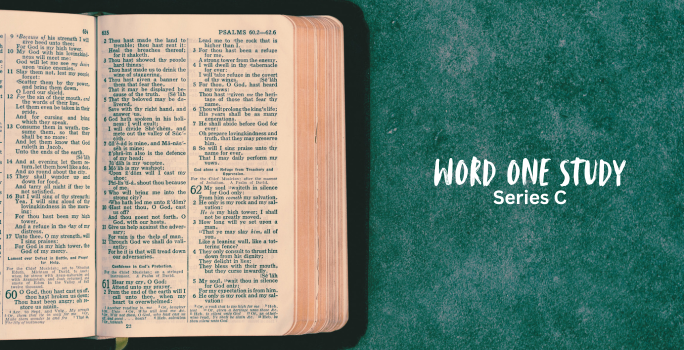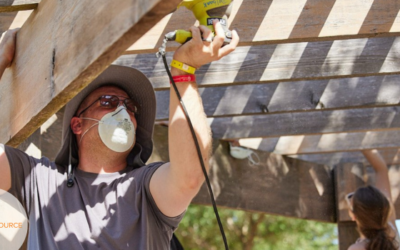Download a PDF of the Word One Bible Study for Advent 2 Gospel.
Text: Luke 3:1-14(15-20) for the Second Sunday in Advent, Lectionary Series C
OBJECTIVES
Participants will:
- Better understand “repentance” as “ongoing preparation” in our relationship with God.
- Recognize the call for all Christians to live out the faith in their daily life.
MATERIALS NEEDED
NIV Bibles
Markers
Newsprint
Tape
BUILDING COMMUNITY
- Have the large group sit in a circle. Say, “We are going on a trip and I am going to take _________ .” Fill in the blank with an item that begins with the first letter of your name. Continue to the next person. Without explaining the instructions, continue around the circle until everyone has figured out the pattern. If someone suggests something that begins with a letter other than that of his/her first name, reply with something like “I’m so sorry, you can’t go on our trip if you take a __________.” After everyone has had a turn, go around the circle again allowing those who did not understand the first time to try again.
- Ask the students to brainstorm special things for which they prepare. Write the answers on newsprint. Have everyone who has been to (a fairly common vacation spot) form a group. Continue to divide the groups in this way.
- Provide newsprint and markers to each small group. Have each group select one item from the list compiled in #2 and discuss how one might prepare for this event/activity. Discuss if and why preparation is necessary or important. Summarize answers on newsprint.
LOOKING AT GOD’S WORD
- Reassemble as a large group. Within the small groups, read Luke 3:1-6. Discuss:
- For what was John preparing?
- The study notes in the Concordia Self-Study Bible says this about verse 4b. “Before a king made a journey to a distant country, the roads he would travel were improved.” How can we use this piece of information to help us better understand Luke 3:1-6?
- What types of preparations do you think John was suggesting? In particular, what kinds of preparations did individuals need to make?
- Have participants pair up and look up the following passages of Scripture. Assign each pair a particular section. Allow about ten minutes for discussion.
Ezekiel 18:20-24, 30-31
Acts 20:21-26:30
Acts 3:19-20
2 Corinthians 7:8-11
- In your own words, what are these verses saying?
- How is repentance defined in these verses?
- How can we see repentance?
- How often must I repent?
- Who needs to repent?
- Who or what causes us to repent?
- How important is repentance?
- Reassemble as a large group and read Luke 3:7-20. Discuss:
- What fruits are John the Baptist speaking of in his words to the people?
- According to John the Baptist, what will happen to those trees which don’t produce good fruit?
- What are some differences between good fruit and bad fruit?
- Why do you think John was saying these words to the people?
- Have participants pair up and look up the following passages of Scripture. Each pair should take a particular section. Discuss the following questions
Isaiah 32:17
Galatians 5:19-23
John 15:1-17
James 2:14-26
- What do these verses teach us about being Christian?
- What do we learn about God from these verses?
- How is this different than what you already believe about God?
- Read together 1 Peter 1:13-16 and 4:7-11.
- What instructions are offered for Christians?
- How are these words different from John’s words recorded by Luke?
- Which verses were most meaningful and why?
REINFORCING WHAT HAS BEEN LEARNED
- Reassemble as a large group. Finish the following sentences:
- I repent when I . . .
- When I repent I am . . .
- I realized that repentance is . . .
- I realized that repentance is not . . .
- Right now, I feel my relationship with God is . . .
- I want to live my faith by . . .
CLOSING
Do a circle prayer with each person praying for the needs of someone else in the group.
by Marianne Hart
Originally published in Discovery Bible Studies 19, 1996.
Updated for youthESource in November 2015






0 Comments